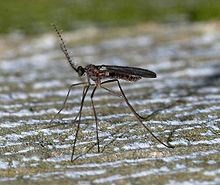United States Customs and Border Protection (CBP) Office of Field Operations agriculture specialists discovered multiple pests and invasive seeds during an inspection of rail containers at the Portal, N.D., port of entry rail facility.
In August, agriculture specialists for CBP normally assigned to Pembina, N.D., and International Falls, Minn., joined staff members at the Portal, N.D., port of entry in Saskatchewan to conduct a two-day special enforcement operation.
During the two-day period, several rail containers, which had been targeted for inspection, were examined and revealed several unwanted pests and invasive seeds. A total of 55 different pests were submitted for identification.
CBP agriculture specialists regularly inspect for prohibited products, such as seed and soil contamination, regulated waste, and harmful or invasive insects.
“Our CBP agriculture specialists continue to be our first line of defense in protecting our borders from unwanted pests and diseases that could adversely affect our nation’s food production,” said Pembina Area Port Director Jason Schmelz. “The high success rate in finding pests in these containers is the result of outstanding inspections conducted by dedicated agriculture specialists.”
Brian King, port director and public affairs liaison and a spokesman for CBP later told the Mercury, various courses of action are taken depending on what is found during the inspections.
“If a container is found to be lightly contaminated with federal noxious weed seeds and our officers feel confident they were able to remove all the seeds during inspection, then the shipper is issued a notice advising them of the situation so they can take corrective actions to avoid potential refused containers in the future.”
If the container, however, is heavily contaminated with noxious weed seeds or live invasive insects, then the container is sealed, doors and vents are taped shut and the container is shipped back to the country of origin at the importer/shippers’ expense.
Of the six containers that were found to be in violation during the two day period, three had noxious weed seeds and notices were issued, but they were eventually released after cleaning. The other three containers had live insect pests and were shipped back to the country of origin.
King said the countries of origin found in violation during this two-day blitz were China, Japan, Thailand and Vietnam.
“All the containers we get through Portal come out of the Vancouver seaport,” said King.




